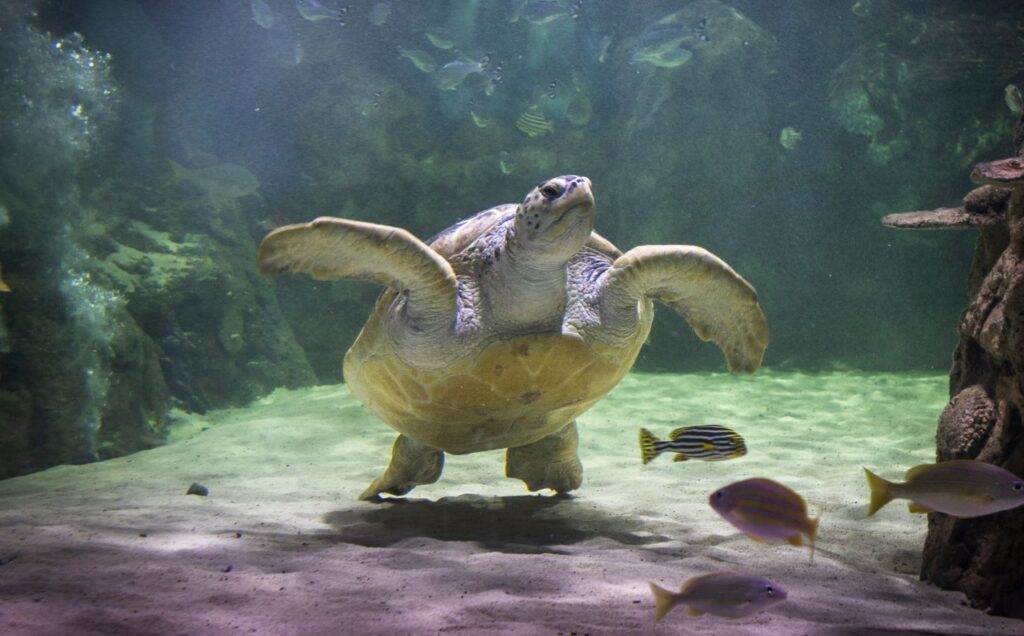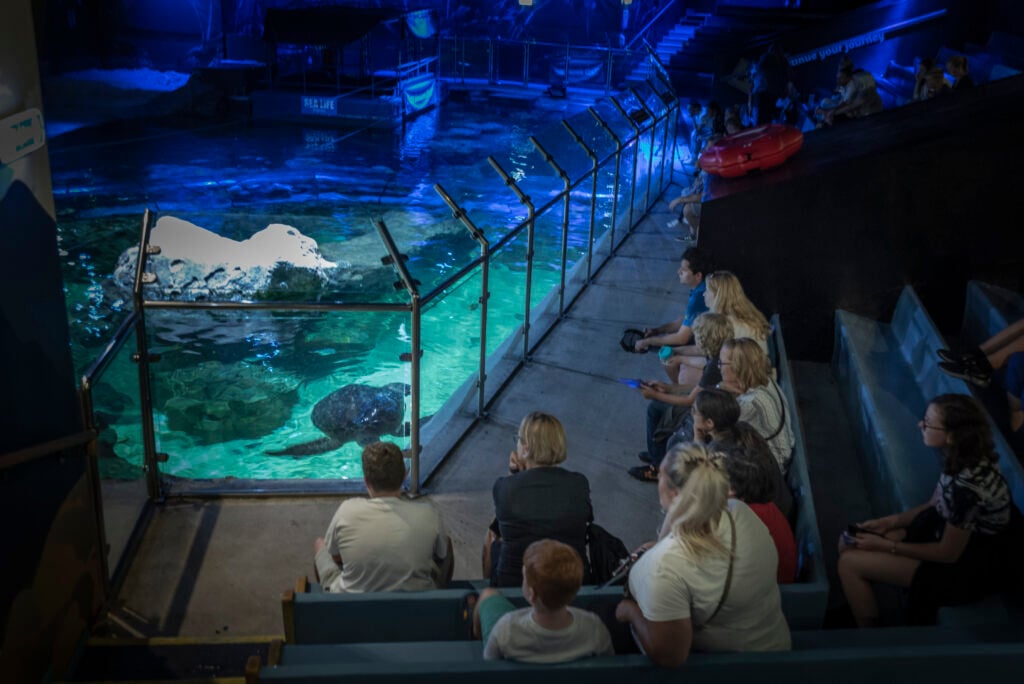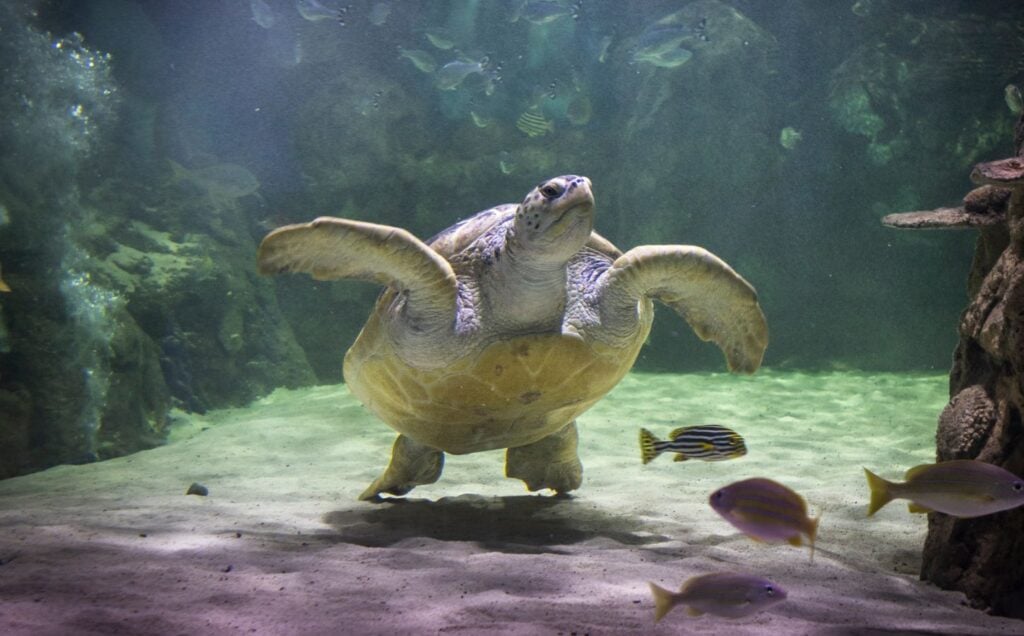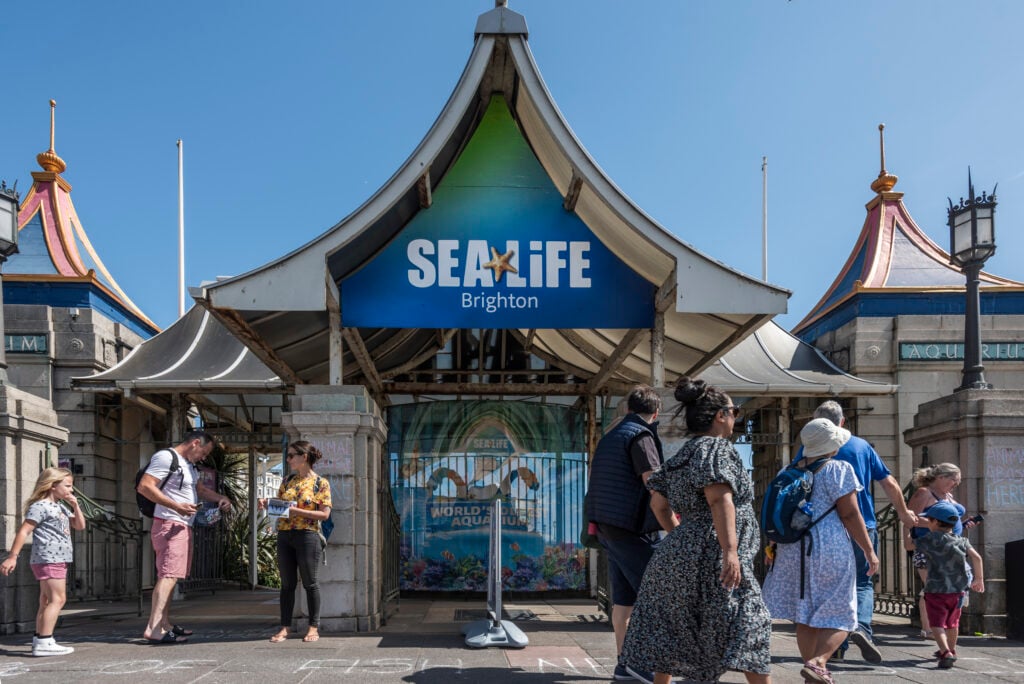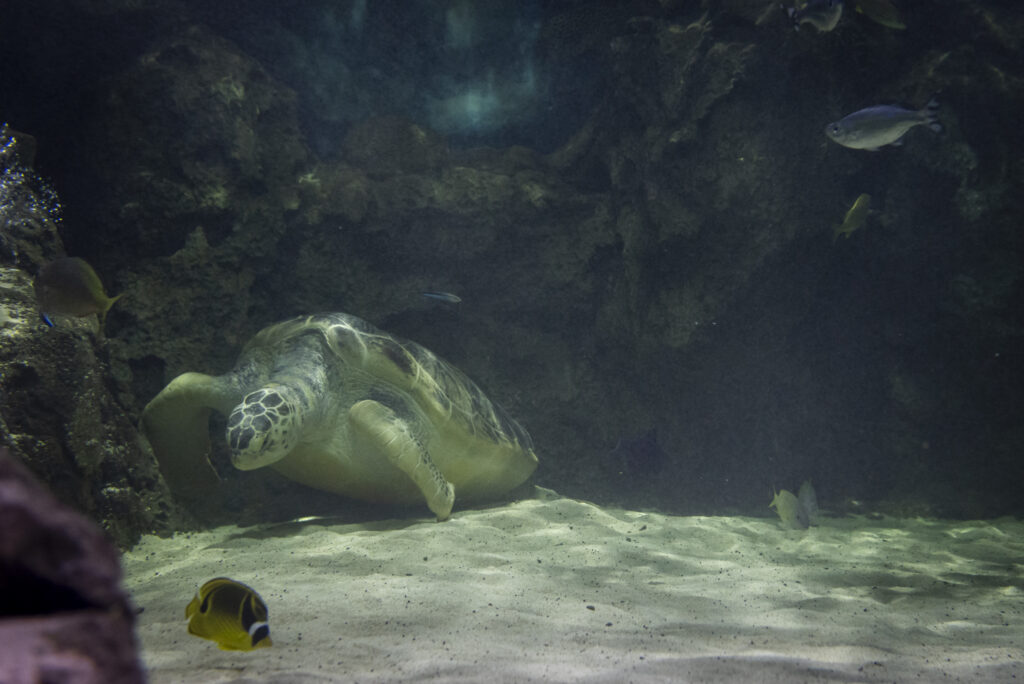Campaigners are asking the world’s oldest aquarium to allow Lulu the sea turtle to be released from captivity to enjoy her final years in freedom.
Aged 82, Lulu is thought to be the most elderly captive turtle. She has been exhibiting what appear to be signs of distress in her tank at Sea Life Brighton. Observers have described the scenes of her swimming in circles and sitting still in the corner of her small tank as “heartbreaking.”
Animal advocacy group Close Sea Life has now launched a campaign to secure Lulu’s release. It hopes to see her enjoying her final years in a dedicated and spacious sanctuary. Alongside this, campaigners are asking Sea Life to end its intake of new captive turtles.
“Sea Life committed to not exhibiting dolphins back in 1991, and now they need to get with the times and grant that same freedom to Lulu, who has endured an unnatural lifetime of captivity for over eighty years”, a spokesperson for the Close Sea Life campaign said in a statement.
“[Sea Life Brighton] has the capacity and money to help Lulu live her final years in a peaceful and more natural environment than in a small tank beneath Brighton’s busy streets.”
Sea Life pushes back
Brighton’s Sea Life center says, however, that Lulu is not suitable for release.
“We rescue and release over 50 injured or rescued turtles every year but sadly Lulu is not suitable for release into the wild or an open water sanctuary because she does not have the essential skills necessary to survive,” a press release from the aquarium reads.
“Her rehoming came with strict welfare measures and medical checks, as well as a programme of enrichment. Her home in Brighton offers Lulu a safe space to explore, including a dedicated beach area and numerous places to dive, take gentle exercise and rest.”
Turtles taken from the wild
Lulu was born in the wild and captured as a young hatchling in the 1940s. She was originally taken by a TV advertising company to “star” in a commercial. She has since spent the last 20 years at Sea Life Brighton as a tourist attraction.
Before moving to England’s South East coast, she spent 30 years at London Zoo and 19 at Sea Life Blackpool. At the latter, she outgrew her tank.
Her story is neither uncommon nor the only tragic fate experienced by sea turtles. The animals, when left to live their lives naturally, swim thousands of miles in their lifetime, but are frequently hunted.
The killing or capture of sea turtles is now illegal. They are protected by the Convention on International Trade in Endangered Species (CITES), but this has not prevented illegal activity. Many are still caught and slaughtered.
Studies show that turtles remain the victims of hunters, with more than 1.1 million killed in the last 30 years. The figure was calculated from compiled reports and conservation statistics. However, researchers admit that the clandestine nature of illegal hunting makes it likely that kill figures are much higher.
Sea turtle trafficking continues due to unscrupulous hunters looking to profit from the sale of turtle meat, shells, eggs, and more. Some are kept alive, to be sold as exotic pets, though the majority are killed for their parts.
You can sign the petition to release Lulu here.
